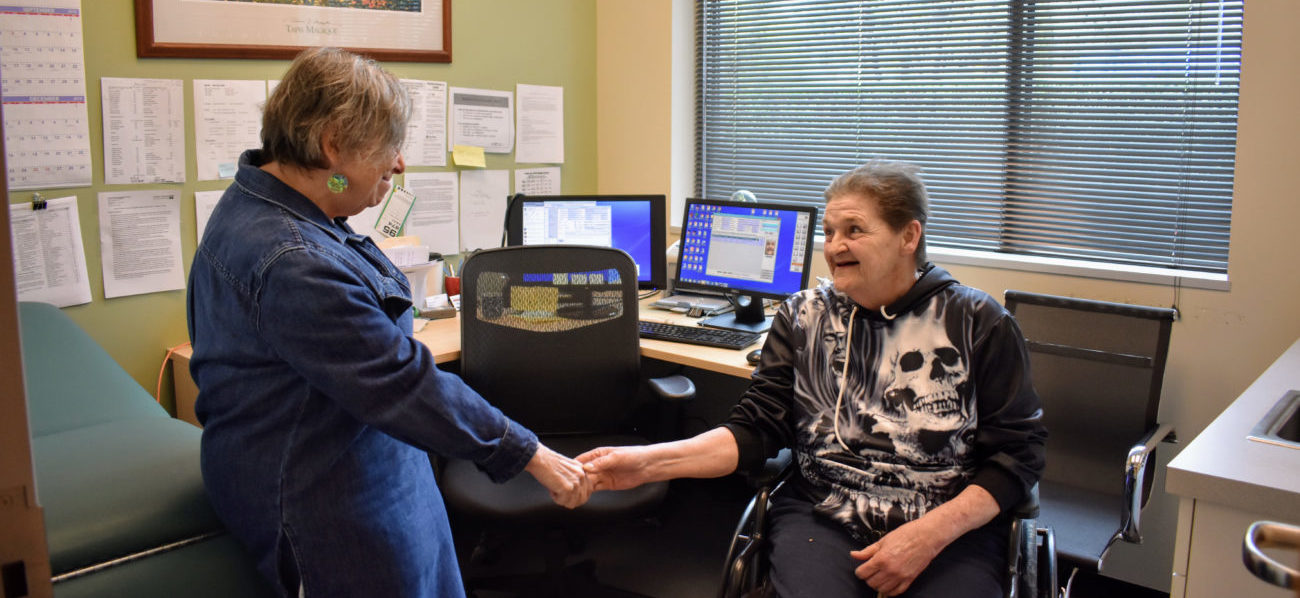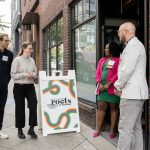
By Chloe Gale, REACH Co-Director and Sean Soth, Director of Clinical Services—
If you haven’t seen the recent KOMO special “Seattle is Dying,” watch it with a skeptical eye.
This “documentary” is a one-sided look at our city’s challenges of homelessness and addiction. It advances a false divide between “us” – the lawful, frustrated citizens of Seattle – and “them” – the supposedly drug-addled, irresponsible people who live on and dirty our streets. It advocates for a single solution, arrest and incarceration, that has historically made substance use in the U.S. worse, disproportionately punished people of color, and criminalized poverty. KOMO uses outlier anecdotes instead of facts and data and conflates substance use and homelessness.
“Seattle is Dying” ignores the work of social service providers here in Seattle and presents a hopeless case. Evergreen Treatment Services and REACH are part of a network of providers that use evidence-based solutions to get people stable and housed. Had KOMO included interviews from people who work in the social service sector, they would have realized that our work is effective but under-funded and, as a result, under-utilized.
As a counterpoint to “Seattle is Dying,” we want to share what’s working in our city.
First, let’s define what we mean by “working.” Homelessness is a complex and multilayered challenge that is not the result of a single factor. When we say a program is working, we mean it is making an impact on part of this enormous challenge.
This does not mean that within a year’s time, a solution that “works” will clean up the streets, get everyone who needs treatment for substance use into an appropriate program, and ensure that people living outside are housed. This challenge has been years in the making, it will take years more to build effective solutions.
Given that context, let’s look at what’s working.
Building Relationships
People who are homeless, particularly those who are in crisis, are often severely traumatized. They have been abused, exploited, often suffer from post-traumatic stress or are currently experiencing trauma, and repeatedly given reasons not to trust other people; arrest and prison only reinforce this distrust.
Our REACH team is on the street every day getting to know people who are homeless and learning about the challenges they face. Our outreach workers connect with people, sometimes over the course of months, and ask them what they need, patiently building relationships. The goal of the REACH team is that when people are ready to make big changes like entering substance use treatment or moving into housing, they have someone they can turn to for support.
We are partnering with Seattle businesses to reach more people with this approach. REACH’s neighborhood-based, business association-funded approach in Ballard is making a difference and they are expanding this work to SODO and other neighborhoods. According to one Ballard business owner, REACH provides an alternative to calling the police when someone who is homeless and in crisis is affecting their business operations. An outreach worker who has built relationships with the people living outside in this neighborhood is able to respond to issues and provide solutions for the benefit of the business and the person who is homeless.
Housing First
People with behavioral health challenges do better when they don’t have to worry about finding a safe place to sleep. This is intuitive, but it is also backed by significant research. According to the Housing Alliance, “over a period of decades, research has proven that providing housing without conditions (such as requiring someone to be “clean and sober” before moving in) is effective at reducing drug use and improving health. It’s also cheaper to the public than the alternative.” The alternative, in this case, could be emergency room visits or arrests and jail time.
In other words, if you want people to engage in mental health and substance use treatment, make sure that their most basic needs are met first. In Seattle, a city where rents have increased by 43% since 2009 – without a comparable increase in income – that means creating more affordable and supportive housing options.
Medication-assisted Treatment
Medication-assisted treatment (MAT) is the gold-standard of opioid use disorder treatment. KOMO traveled 3,000+ miles to spotlight a MAT program in Providence, RI but they could have driven to south Seattle where Evergreen Treatment Services has been providing this treatment for more than 40 years. MAT reduces overdose and offers the best chance of long-term recovery. It pairs medication to stabilize brain chemistry and manage cravings with wraparound services like counseling, drug testing, health screens, and acupuncture.
Our staff who directly serve ETS’ nearly 3,000 daily patients can attest that this treatment transforms lives. Patients go from years of living on the street trying to find their next fix to holding jobs, taking care of their children, and living productive, satisfying lives.
None of these solutions represent a quick fix. The challenges our city faces are complex, and no single solution is going to solve them all. We need more investment in evidence-based approaches in addition to a concerted effort to provide affordable housing.
In the end, the KOMO documentary calls for Seattleites to fight for their city. We also have a call to action: Let’s invest in measured and effective solutions that are proven to work. This is a challenge that only sustained, compassionate, and people-centered responses can solve.





Thanks for this!
Cat Jobes RN
Formally with HHOT, now an OBOT RN at the HMC Boren Clinic